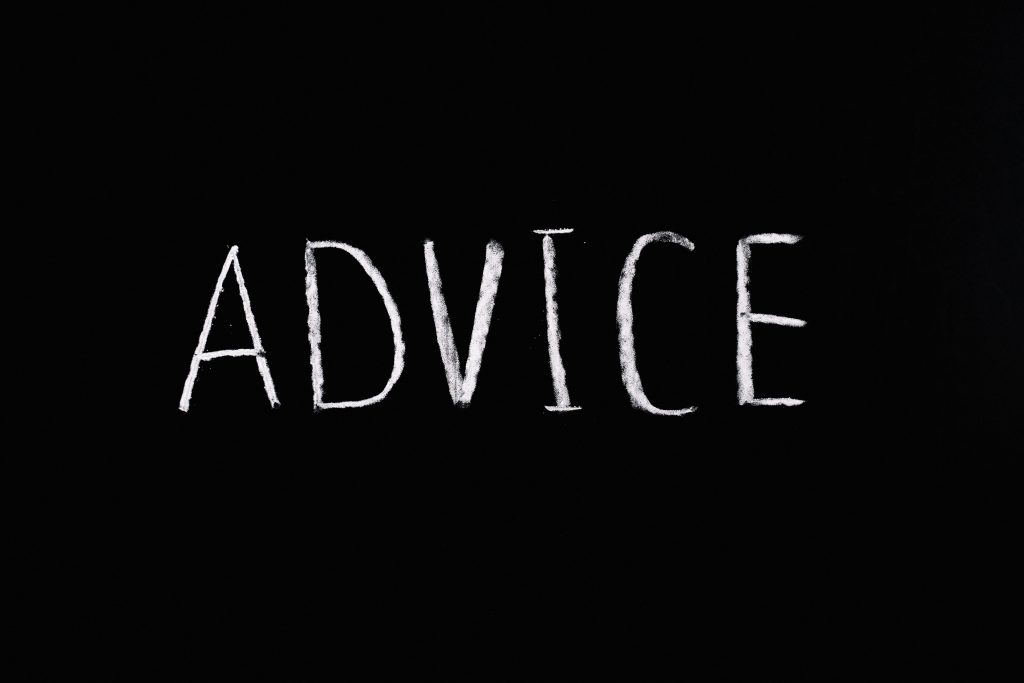Do you have someone to guide you through the key steps of your career and give you the right advice? Are you aware of the benefits of having a good mentor? Do you know how to find a mentor and approach them?
Plenty of research has shown mentors can transform your career for the better. For example, a 5-year study by Sun Microsystems tracking the career progress of about 1,000 employees found that:
- Employees with mentors were promoted 5 times more often
- Mentors were 6 times more likely to have been promoted as well.
(While we’re focusing today on finding mentors, and why you need one, this second item shows how being a mentor is powerful, too!)
And that’s not all - 70% of Fortune 500 companies say they have a mentoring program, and 67% of companies in a survey published by National Mentoring day reported an increase in productivity due to mentoring.
Unfortunately, great mentors can be tricky to find. That’s because they have to be a good match for you in terms of your skill set, character, and both of your availability.
In today’s post, we’ll teach you where to look for a mentor, how to approach them, and what you can expect from them.

Everything You Need to Know About Finding a Mentor
This post is divided into five sections:
- Defining the role of a mentor
- Where to find a mentor
- Three qualities to look for in a mentor
- How to approach a mentor
- Bonus tips for making the most of the mentor-mentee relationship
Let’s jump right in and go over some of the basics of finding a great mentor.

What does a mentor do?
The role of a mentor covers several key areas, including:
1) Understanding which skills you need to succeed as a leader and how to build them.
As you advance in your career as a leader, you need to continually learn and build new skills. And even if you’re a highly enthusiastic reader and learner, there are some things that are best taught through experience and expert insight.
These can include things like soft skills such as getting buy-in for your ideas, having truly meaningful 1:1s, and being a better listener. Your mentor can teach you a lot about these skills and point out untapped ways to get better at them they’ve learned through their own experience.
They can also give you a key outlet and be a trusted confidant you don't have to worry about politics with.
For really tough situations, it can really help to have an outsider’s perspective. They can give you an objective opinion about the situation and what to do about it. This can be really helpful, whether to tell you you’re overreacting, or that dramatic action should be taken (or anything in between).
Because they’re likely not in your company (or at least not in your direct reporting structure), they won’t be influenced by the politics in your company and aren’t motivated to sway you or skew your opinion one way or the other. It’s why even the most senior of leaders embraced having mentors: Mark Zuckerberg spent a lot of time with Steve Jobs, and Bill Gates met with Warren Buffet regularly.
2) Helping you solve specific problems you're dealing with.
Another great part of finding an experienced mentor is that they’ve overcome many of the challenges you’re facing now. They will very likely be able to share ideas on things like handling inter-team conflicts, motivating your team in a crisis, turning around underperformers, and many other similar issues you face as a leader.
Crucially, they’ll be able to share real-life examples from their own career and those of their friends that are relevant to your situation. Because they’re further in their career, they can give you the gift of foresight as you chart a path in your career.
Unfortunately, finding all of this in one person is rare. Even if you work at a relatively big company, there's a chance you won't find a close enough fit for your needs.
That’s why it’s often beneficial to have multiple mentors you build a strong relationship with. This gives you a diversity of opinions, and avoids taxing one person with too many or too frequent of questions.
Of course, if you are going to seek out multiples mentors, it makes knowing where to look all the more important. Here are some suggestions on how you can get started finding a mentor.

Where can you find a mentor
If you work at a large company (10,000+ employees), a good place to start looking for a mentor is your own company. If that’s the case, you can start by asking your manager and/or HR business partner if there is a mentorship program, and how you can participate.
Of course, smaller companies usually don’t have mentorship programs, due to their size, and other priorities for small HR departments. It’s also a lot harder to find a mentor inside your own company if the reporting structure is small enough that a mentor wouldn’t truly be removed from your work; a key benefit of a good mentor is them being an outside perspective after all.
If you want a mentor outside your company, or work at a small one so you have to find one outside, start by turning to your network to find someone. Directly ask someone if you know they’d fit, or ask some in your network to help in your search.
Unfortunately, many of us aren't lucky enough to find the perfect mentor within our own company or network. Luckily, there are a few other places you can include as part of your search:
- Industry Groups: No matter what your background is, there’s an association or community related to your work you could join in search of a mentor. You can attend their conferences and events, or contact them directly to ask for a recommendation.
- Slack Communities, Facebook groups, or Reddit: Many online communities are worth scouting for potential mentors. Slack Communities, closed groups on Facebook, and niche sub-reddits all offer a place to exchange ideas with people from your industry, discuss common topics, and get feedback and tips about your career. To find a mentor in one of these places, you can start a post or a thread, ask some questions, or contact active members directly seeking advice.
- Linkedin: Another good idea is to go through your connections on Linkedin. You may find someone you've not talked to in a while who can help. Alternatively, you can take advantage of one of Linkedin’s biggest strengths - showing you people your friends may know and could then potentially introduce you to. You can also use search filters and look for experts based on their job title or skillset. Once you find them, try messaging them to see if they’re a match for you in the long term, or ask a friend a degree away for an introduction.
- Twitter: Although it’s probably not the first place you’d think of when looking for a mentor, there’s a lot of great professional advice you can find on Twitter. People there tend to respond to @ replies and DM’s more than on other platforms. Many of our team members scheduled useful calls and had productive discussions thanks to Twitter.
- Clarity: Clarity.fm is a community of experts from various professions you can schedule calls with and ask questions. Unlike the other free options we’ve covered so far, this is a paid source. On Clarity, each expert has their per-minute rate, and you can make your choice based on the skills that you’re looking for. If you’re worried about the price, consider asking your manager to help cover the cost. Often, if you’re engaging them regularly, they’ll be open to a discounted price, especially if your company makes payment simple.
- Luke-warm emails: Have you ever seen a blog with the owner’s email address in the footer or About page? You’d be surprised by how many people actually respond to emails if you reference something of theirs you’ve read. If you think they are a fit for being your mentor, prepare some questions and start your relationship with them. If you don’t succeed because they’re too busy, you can always ask them to introduce you to another person who could help you grow.
When searching for a mentor, persistence pays off. If you keep searching these sources, as well as interacting with colleagues, connections, and active community members, you’ll have a much higher chance of finding the perfect mentor.
However, even if someone seems like a great fit in terms of their skill set, role, and experience, there are still more you should consider before engaging them.

3 things to look for in your mentor
The first thing you want to do when talking to a potential mentor is make sure they aren’t too many steps ahead of you.
For example, the CEO of Pepsi isn’t going to be able to help a brand new manager or even a mid-level leader all that much. That’s because CEOs (especially at large corporations) lack perspective on the day to day challenges mid-level managers face.
To avoid that issue, go for someone who’s a couple steps ahead of you, but still remembers what it was like at your current career stage.
Your mentors also need to be able to meet with you at a regular frequency.
Most mentoring relationships involve meeting about once a month. The typical exception being if you’re working through a crisis or big challenge.
Unfortunately, for some people, often due to major challenges or life changes personally or professionally, that’s still too much time to dedicate to mentoring.
And if they don’t have time to meet, they can’t be much of a mentor for you.
This is also why them being within a couple of steps ahead of you in their career can help. Especially early on, they probably have fewer people asking them for advice than a famous founder or executive.
Later, as you rise in your career, you’re more likely to understand what someone a step or two ahead of you may have for a life and how to work around their schedule.
Finally, and quite importantly, your mentor needs to have a career path you want to emulate.
If you want to be a software architect, don’t choose a VP of Engineering who spends most of their time being a people manager. If you want to transition from customer success to sales, then finding someone who has already successfully made that leap will be more helpful than someone who has not.
You can see someone’s path pretty easily: Either check their LinkedIn, or directly ask them. Being specific in your search can also help others help you find the right person; when you’re specific about what you need, everyone is more likely to think of the perfect fit for you than guessing.
Once you find someone who’s a great candidate, you need a plan to approach them - we’ll be discussing that in the next section.

How to ask someone to be your mentor
Finding a mentor is a simple process, but one that you shouldn’t rush into. We recommend following this relatively straightforward pattern to kick off your partnership with a mentor, and ensuring it’s a great, mutual fit:
- Set up a first call or coffee meeting.
- See how the first meeting goes, review what you’ve learned, and set action items for next time.
- Make sure you do what you say you would. If your potential mentor does, too, that’s a great sign.
- Follow up and schedule another call/check-in if there's a reason to keep talking.
- If the second meeting goes well, discuss how you can formalize and continue the relationship.
By having 2 meetings before you formally ask them to be your mentor, it gives you both a chance to test things out. In these meetings you can see if your personalities mesh, their advice makes sense to you, and if you feel they can continue to add value for you.
If you follow these steps, you’ll be on your way to getting the most out of your mentor’s experience and accelerating your career growth. But before we close, there’s a few more things you should keep in mind.

Bonus Tips: What You Should Know About the Mentor-Mentee Relationship
There are a few other things you should know about choosing a mentor and building a relationship with them that’s beneficial for you, and respectful of their time.
- Try before you buy: Meet a couple of times and confirm they continue to be helpful and you get along well. This also avoids an awkward conversation where you’re asking them to be a mentor before you’ve met (which is like asking someone to marry you on the first date).
- Get multiple perspectives: While it can be very helpful to have a primary contact that helps you, it’s very beneficial for you to get multiple views and opinions when you’re making big decisions. Avoid over-relying on one person for everything.
- Only stick with someone if it’s working. It’s okay to switch mentors or transition away from someone if it’s not working. This is why it’s beneficial to have multiple mentors you can turn to for different needs.
- Respect their time: Only schedule meetings if you have something to talk about. It also shouldn’t be up to your mentor to pull an agenda and topics out of you. Wasting their time is a sure-fire way to have a mentor ask to discontinue meeting with you.
- Follow up and follow through: Nothing frustrates a mentor or coach like having to give the same advice over and over and seeing no change. Make sure you take notes, and follow their advice. And you really score points with them if you follow up and let them know how things turned out.
- Be grateful: This person is likely giving you their time for free, so be sure to thank them. A gift on their birthday, your anniversary working together, or around the holidays can mean a lot to them, especially if you make it thoughtful.
By following these 6 tips, you’ll ensure you’re getting what you need from the relationship and show your mentor how much you value their time and advice.
Conclusion
Finding a mentor is rarely easy, but it is absolutely worth the effort and time you put into it. It allows you to:
- Learn about the different skills you need to keep growing as a leader, including navigating challenges that are best taught through experience
- Confide in someone who’s not involved in company politics and can help you deal with sensitive issues
- Offer real-life examples of how to solve specific challenges you’re dealing with
- Help you expand your professional network, identify great career opportunities, and much more.





